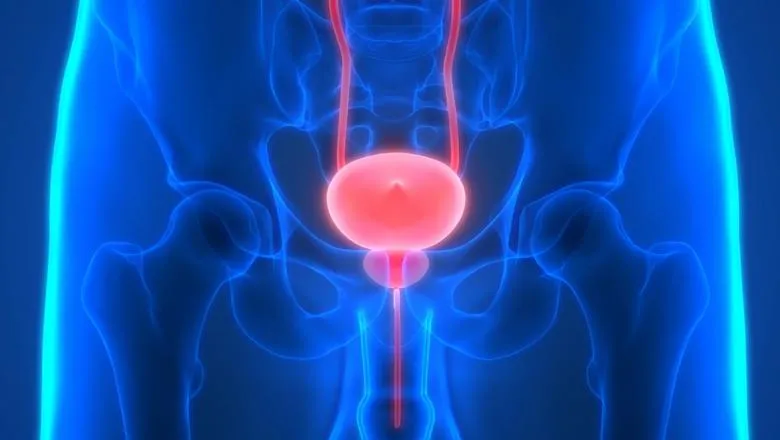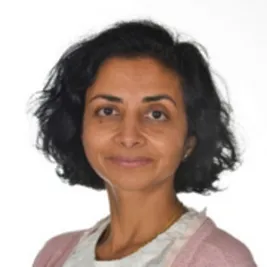8th Bladder Cancer Translational Research Meeting

Location:
Fry Suite, Edgbaston Park Hotel & Conference Centre
53 Edgbaston Park Road, Birmingham B15 2RS
///form.steep.amber

The Bladder Cancer Research Centre (University of Birmingham) and the Transforming cancer OUtcomes through Research (TOUR) team (King’s College London and Guy’s Hospital) are organising their 8th Bladder Cancer Translational Research Meeting - a fully interactive bladder cancer clinical research meeting led by an international expert panel of clinicians and scientists in the U.K. The forum is designed to bridge the gap between science and clinical practice and will cover the spectrum of bladder cancer research in oncology, urology, nursing, epidemiology, immuno- and molecular biology.
Despite the substantial disease burden for patients and healthcare providers, bladder cancer only receives 0.6% of cancer research spending. This meeting will thus provide an opportunity to enhance collaborations across the UK and internationally and allow networking opportunities between clinicians and scientists allowing participants to anticipate crucial observations in the clinical practice to inform research activities and vice versa. Marrying these two diverse disciplines will enable healthcare systems to provide more efficient outcome-driven patient-centred interventions in the field of bladder cancer.
Abstract submission
In addition to engagement through interactive sessions with high impact speakers, we invite participants from their respective units to submit and present their research. Three high impact abstracts will be selected for an oral presentation, and the best oral and poster presentations will be awarded with a prize.
Abstracts need to be submitted to Ann Smith via: bladdercancer@contacts.bham.ac.uk by Sunday 15th March 2026.
Abstracts should be structured (background, methods, results, conclusion) and be no longer than 300 words. All authors should be listed, including their affiliation.
Kindly ensure that each abstract is submitted as a separate file. This helps us to manage and review submissions more efficiently.
Registration is required for all accepted presenters.
Programme
|
Time |
Title |
Speaker |
|
9:15-9:30 |
Welcome & Introduction to the day |
Professor Rik Bryan Professor Mieke Van Hemelrijck |
|
SESSION 1: |
Quality of Life and Patient Wellbeing |
|
|
9:30 - 9:50
|
Understanding patient preferences for urinary biomarkers vs. flexible cystoscopy in the diagnostic and surveillance of bladder cancer: A Discrete Choice Experiment |
Anna Haire |
|
9:50 - 10:10 |
Update and validation of the EORTC bladder cancer questionnaires |
Elke Rammant |
|
10:10 - 10:30 |
Our study: what we are doing and why it matters |
Shahrokh Shariat |
|
10:30 - 10:50 |
Patient Reported Outcomes and Treatment Tolerability in Bladder Cancer |
Devin Peipert |
|
10:50 - 11:05 |
Discussion session for all talks |
|
|
11:05 - 11:25 |
Tea and coffee break |
|
|
SESSION 2: |
Translation
|
|
|
11:25 - 11:45 |
Barriers and facilitators to implementing bladder cancer biomarkers (TBC) |
Steven Maclennan |
|
11:45 - 12:05 |
DigiCore |
Alberto Traverso and Vito Cucchiara |
|
12:05 -12:20 |
Discussion session for all talks |
|
|
12:20 - 13:40 |
Lunch Break, networking & poster viewing |
|
|
SESSION 3: |
Treatment |
|
|
13:40 - 14:00 |
Novel therapeutic approaches for NMIBC. |
Brant Inman |
|
14:00 - 14:20 |
Royal College of Radiologists Muscle Invasive Bladder Cancer reaudit results |
Mohini Varughese |
|
SESSION 4: |
Abstract presentations |
|
|
14:20 -15:05 |
Abstract presentations (three best abstracts) plus questions |
|
|
15:05-15:25 |
Tea and coffee break |
|
|
SESSION 5: |
Plenary session |
|
|
15:25 -15:45 |
To immunity and beyond: integrative analysis of multidimensional data sets to study bladder cancer immunology and tumour biology |
Rose Foster |
|
15:45 - 16:05 |
Comprehensive characterisation of hypoxia signaling and its impact in radiotherapy response |
Conrado Quiles |
|
16:05 - 16:25 |
Digital Pathology and AI – The end of pathologists or new beginnings? |
Jon Griffin |
|
16:25 - 16:45 |
Discussion session for all talks |
|
|
16:45 - 17:00 |
Closure and prizes |
Professor Rik Bryan |
Organising Committee

Mieke Van Hemelrijck
Professor in Cancer Epidemiology, King's College London
Professsor Van Hemelrijck studied for an MSc in Biomedical Sciences (2001-2005) and an MSc in Statistical Analysis (2005-2006) at Ghent University, Belgium. While doing so, she became engaged in epidemiology research in the field of urology. She continued her epidemiological training by spending two years at the Harvard School of Public Health (2006-2008), where she obtained an MSc in Population & International Health, staying focused on urological research. From 2008-2010, she worked with Professor Holmberg at King’s College London and obtained a PhD in Cancer Epidemiology. In 2012, she was appointed as a Lecturer in Cancer Epidemiology at King’s College London. She leads the TOUR (Transforming cancer OUtcomes through Research) Team in the School of Cancer & Pharmaceutical Sciences and became a Professor in late 2020.

Professor Rik Bryan
Director of the Bladder Cancer Research Centre, University of Birmingham and Professor of Urothelial Research
Professor Rik Bryan is a former clinical urologist, and now a full-time bladder cancer research academic. He is the Chief Investigator of the Bladder Cancer Prognosis Programme (BCPP), POUT-T, and BC-Recon. He is the Director of the Bladder Cancer Research Centre (BCRC) in the Department of Cancer & Genomic Sciences at the University of Brimingham, leading a multi-disciplinary translational research team. The BCRC has a particular interest in the genomics and epigenomics of bladder cancer and related biomarkers, and novel agents, technologies, and pathways.
Faculty

Miss Nada Humayun-Zakaria,
Academic Clinical Lecturer, University of Birmingham, West Midlands NTN(a)
Nada is an NIHR Academic Clinical Lecturer in Urology with an academic national training number in the West Midlands. She completed her PhD at the University of Birmingham, where her research focused on bladder cancer, exploring urinary biomarkers through bioinformatics and multi-omics approaches. Her academic interests centre on translational bladder cancer research, with a focus on biomarker discovery and molecular disease profiling. She was recently recognised as an RSM Urology Scholar.

Anna Haire
Senior Study Coordinator – Bladder Cancer Lead.
PhD Student
I am a Senior Study Coordinator in the Transforming Cancer Outcomes through Research team (TOUR) at King’s College London and a part-time PhD student. I coordinate the BC-Recon study, a multi-centre evaluation of the GALEAS™ Bladder urinary biomarker in patients attending haematuria clinics. Alongside this role, my PhD research explores the relationship between a bladder cancer diagnosis and patient mental wellbeing, with the aim of identifying unmet needs and potential targeted interventions.

Dr. Elke Rammant
Postdoctoral researcher, Ghent University
Elke holds a Master of Science in Health Promotion (Ghent University, 2016) and obtained her PhD at the department of Radiation Oncology (Ghent University, 2021) with the doctoral thesis titled “Physical activity and psychosocial cancer (p)rehabilitation to improve health-related quality of life in bladder cancer patients undergoing radical cystectomy.” Following her PhD, she spent one year as a research fellow at King’s College London (UK, 2021) and completed a six-month research stay at Flinders University in Australia (2024). As a postdoctoral researcher, she primarily focuses on patient-reported outcomes (PROs) and (p)rehabilitation in oncology patients. Within the field of PROs, her work spans the full spectrum—from developing patient-reported outcome measures (PROMs), to applying PROMs in observational and interventional research, and implementing them in routine clinical practice. A significant part of this work is conducted in collaboration with the European Organisation for Research and Treatment of Cancer (EORTC) Quality of Life Group.

Dr. Shahrokh Shariat
Chairman of the Department of Urology, Head of the Comprehensive Cancer Center, Medical University of Vienna
Dr. Shahrokh Shariat has enjoyed a distinguished 25-year career in academic medicine and higher education.
Since 2013, Dr. Shariat has served as Professor and Chairman of the Department of Urology, as well as Acting Chair of the Comprehensive Cancer Center at the Medical University of Vienna and Vienna General Hospital. He also holds adjunct professorships at Weill Cornell Medical Center, New York, University of Texas Southwestern Medical Center, Dallas, and the Faculty of Medicine at Charles University, Prague. Additionally, he is an Honorary Professor of Urology at the University of Jordan, Amman, and the University of Tabriz, Iran, and has been awarded honorary doctorates from Carol Davila University of Medicine and Pharmacy, Bucharest, and Semmelweis University, Budapest.
His research focusses on molecular mechanisms, markers, early detection, natural history, treatment, and translational as well as outcomes research in urologic maladies. His laboratory research focuses on integrative genomics and epi-genomics of genito-urinary carcinoma with the goal of designing personalized therapeutic strategies. Through a well-designed translational, interdisciplinary network of collaborators, his team was able to progress compounds from cell-line-based drug screens through mechanistic and efficacy assessment in vitro and in vivo experiments to Phase I human clinical trials. Under his leadership, the Department of Urology at the Medical University of Vienna reshaped the vision of what a Urologist should be from a largely surgical specialist to a patient-centred, research-driven, outcomes-oriented expert.

Professor Devin Peipert, PhD
125th Anniversary Chair and Professor of Health Outcomes Measurement
Devin Peipert, PhD is a 125th Anniversary Chair and Professor of Health Outcomes Measurement at the University of Birmingham, where he works within the Centre for Patient Reported Outcomes Research (CPROR) and is Deputy Director of the Birmingham Health Partners Centre for Regulatory Science and Innovation (BHP CRSI). Prof. Peipert’s research focuses on amplifying the patient’s voice in drug development. He focuses heavily on development and psychometric evaluation of patient-reported outcomes (PROs) to support regulatory decision-making. A central thread within this focus includes capturing treatment tolerability from the patient’s perspective using PROs, wherein he has worked extensively on approaches to assess overall side effect impact of cancer treatment. Related to this activity, he is the ECOG-ACRIN PRO Workgroup Chair in the United States and has taken on leadership roles within the National Cancer Institute’s Tolerability Consortium. He also has a significant focus on patient-focused drug development in rare kidney diseases and solid organ transplantation, and he co-leads a project to develop a novel set of clinical outcome assessments and endpoints for patients with rare kidney disease across the lifespan who experience nephrotic syndrome-related swelling (Prepare-NS).

Dr Doug Ward
Senior Research Fellow and Theme Lead - Biomarkers & Proteomics at the Bladder Cancer Research Centre, University of Birmingham
Doug Ward is a Senior Research Fellow leading the laboratory research into biomarkers at the BCRC. His group’s research spans all aspects of tissue and liquid biopsy biomarkers - from initial candidate discovery though to validation and translation into clinical use.
Doug spent the early part of his career using biophysical techniques to investigate protein structure and function. This led to an interest in mass spectrometry-based proteomics which evolved into utilising proteomic technologies to study bladder cancer, and the resultant identification of prognostic protein biomarkers. Next generation sequencing has now become a key technology for DNA and RNA-based biomarker research and his group have recently developed and validated GALEAS Bladder, a test based on targeted sequencing of urine DNA for the non-invasive detection of bladder cancer.

Dr Roland Arnold
Research Fellow/Group Leader and Theme Lead for Bioinformatics and Genomics at the Bladder Cancer Research Centre, University of Birmingham
Roland obtained his PhD in 2010 from the Technische Universität München (Germany), followed by postdoctoral research in Toronto (Canada) and a senior bioinformatician position in Oxford (UK). He joined the University of Birmingham in 2016 and has served since 2017 as the Theme Lead for Bioinformatics and Genomics at the Bladder Cancer Research Centre.
Roland is an expert in computational analyses that integrate molecular processes, such as cancer-associated mutations and gene expression changes, with resulting cellular phenotypes and patient characteristics. His research focuses on translating molecular and cellular findings into clinically relevant insights. His team works on several areas, including patient subtyping of non-muscle-invasive bladder cancer and exploring novel molecular layers not yet well understood in the bladder cancer context, such as RNA splicing and circular RNAs.

Dr Steven MacLennan
Senior Research Fellow in the Academic Urology Unit at the University of Aberdeen
I am a Senior Research Fellow in the Academic Urology Unit at the University of Aberdeen. I lead the implementation research theme which focusses on how we get the most effective clinical practices for urological cancers and benign conditions delivered in routine care. I also sit on the methodology committee of the European Association of Urology, overseeing the quality standards in their clinical practice guidelines, ensuring that patients are meaningfully involved, and leading efforts to implement the EAU’s guidelines.

Professor Ananya Choudhury
Chair in Clinical Oncology, Co-Group Leader Translational Radiobiology, School of Medical Sciences, Faculty of Biology, Medicine and Health, University of Manchester, Honorary Consultant Clinical Oncology, The Christie NHS Foundation Trust
Professor Ananya Choudhury is Chair of Clinical Oncology and Clinical Lead for Advanced Radiotherapy within the Division of Cancer Sciences, University of Manchester as well as Honorary Consultant in Clinical Oncology at The Christie NHS Trust, UK.
Professor Choudhury undertakes research which aims to optimise and personalise radiotherapy using new techniques or imaging technology to deliver high doses of radiotherapy while minimising side effects and predictive biomarkers to determine which patients benefit from different treatments.
Professor Choudhury holds national leadership roles within the Royal College of Radiologists, and works closely with the National Institute of Health and Care Excellence (NICE). Professor Choudhury is currently the Editor in Chief of BMJ Oncology

Professor Rob Jones
Professor of Clinical Cancer Research, University of Glasgow and Honorary Consultant Medical Oncologist, Beatson West of Scotland Cancer Centre
Rob Jones is Professor of Clinical Cancer Research at the University of Glasgow and a Consultant medical oncologist at the Beatson West of Scotland Cancer Centre. He has a PhD in molecular biology and time spent working in Pharmaceutical Research and Development. His clinical practice is the medical management of cancers of the prostate and bladder and has taken part in many of the groundbreaking drug trials in these diseases over the past 20 years. He is director of the Glasgow Oncology Clinical Trials Unit, and head of the Cancer Clinical Trials Unit for Scotland collaboration (CaCTUS). He is a past chair of the UK NCRI Bladder and Renal Cancer Research Group and the Advanced Prostate Cancer subgroup.

Dr Brant Inman, MD, MS.
Chin-Hardie Chair of Urologic Oncology, Professor of Urology and Oncology
Verspeeten Cancer Center, London Health Sciences Center, Western University, London, Ontario, Canada
Dr. Brant Inman is Chin-Hardie Chair of Urologic Oncology and Professor of Urology and Oncology at Western University (London, Canada). From a patient care standpoint, his medical practice is subspecialized in the field of urologic oncology. He treats patients with a variety of cancers of the genitourinary system but has a particular interest in inherited genetic syndromes and urothelial carcinomas. Dr. Inman performs surgery using a variety of methods including laparoscopic, robotic, endoscopic, and open techniques. His research interests include clinical trials and translational research related to bladder, prostate, and kidney cancer. He has worked on the development of new diagnostic tests for cancer, the development and testing of new treatments for cancer, understanding the immune response to cancer, and describing the genetic underpinnings of cancer. He has been a member of Board of Directors of the Society of Urologic Oncology Clinical Trials Consortium, a member of the National Comprehensive Cancer Network Bladder and Penile Cancer Guideline panel,and is a member of the Research Council of the American Urological Association. He is currently Associate Editor of European Urology Focus

Dr Mohini Varughese
Consultant Clinical Oncologist, Royal Devon University NHS Foundation Trust
Dr Mohini Varughese qualified and trained in London. She has been a consultant clinical oncologist in the Southwest since 2009, specialising in the management of prostate and bladder cancers.
She is an active researcher having been PI of >40 clinical trials and has held several posts of the National Institute for Health and Cancer Research (NIHR) until 2024 and is currently the Southwest Peninsula regional research specialty lead for Cancer appointed 2024. She was awarded the joint Royal College of Physicians and NIHR research award in 2018 for research leadership within the NHS.
Mohini co led the initial Royal College of Radiologists (RCR) muscle invasive bladder audit (MIBC), chaired the RCR Bladder Consensus Steering Group, with the statements published in 2023 and co leads the 2025 RCR muscle invasive bladder reaudit.
Mohini’s vision is to continue to enhance clinical trials activity within the Cancer portfolio, working to empower local investigators and clinical teams to be trials active, ultimately so that trials are embedded within routine practice, which is vital in the ever-changing landscape of cancer medicine.

Dr Anna Wilkins
Group Leader and CRUK Clinician Scientist Fellow, Institute of Cancer Research, London.
Honorary Consultant in Clinical Oncology, Royal Marsden Hospital
Dr Anna Wilkins is a Clinician Scientist at the Institute of Cancer Research, London, and an Honorary Consultant in Clinical Oncology at the Royal Marsden, where she treats prostate and bladder cancers with drugs and radiotherapy. Anna’s research combines human translational science with pre-clinical models to investigate how different features of the tumour microenvironment, including non-cancerous cells, might help bladder and prostate tumours survive after radiotherapy.
Anna completed her medical studies at the University of Cambridge in 2001 and spent a year as a junior doctor working on a large-scale HIV/AIDS project in Myanmar. She underwent specialist clinical oncology training across London. During her PhD, Anna led a number of projects, based on the CHHiP trial in prostate cancer, to develop predictive models for the efficacy and toxicity of hypofractionated radiotherapy. In 2019, Anna obtained a Crick Postdoctoral Clinical Fellowship to pursue research in Dr Erik Sahai’s laboratory. Anna now leads the Stromal Radiobiology Group as a CRUK Clinician Scientist, which studies the impact of radiotherapy on different aspects of the tumour microenvironment.

Dr Rose Foster
Postdoctoral Research Fellow, Institute of Cancer Research
Rose Foster is a Postdoctoral Research Fellow at the Institute of Cancer Research, London, UK. She obtained her BSc in Biochemistry from Imperial College London, followed by an MRes in Cancer Biology involving placements at Imperial College and The Francis Crick Institute. She completed her PhD under the supervision of Prof. Nick James in the Prostate and Bladder Cancer team of the Department of Radiotherapy and Imaging at the Institute of Cancer Research, where she applied multiple experimental techniques to study tumour, blood and urine samples from bladder cancer clinical trials patients. She has recently rejoined the same project to maximize the potential of this data, and works in Dr Anna Wilkins’ Stromal Radiobiology group at the Institute of Cancer Research. Her main interest is cancer immunology, both in the tumour microenvironment and systemically, and how this interacts with other areas of tumour biology to module disease progression or response to treatment. She enjoys orchestrating multidisciplinary research in networks of clinicians, scientists, bioinformaticians and commercial collaborators.

Dr. Conrado Guerrero Quiles
Postdoctoral researcher, University of Manchester
Dr. Conrado Guerrero Quiles is a postdoctoral researcher at the University of Manchester, where he is part of the Translational Radiobiology Group led by Professor Ananya Choudhury. He completed his PhD in Cancer Sciences at the University of Manchester, following a MSc in Biomedicine from the Polytechnic University of Valencia and a BSc in Biotechnology from the University Rovira i Virgili. His research focuses on understanding how tumour microenvironment changes contribute to radiotherapy resistance in cancer by integrating multi-omics approaches, ultimately aiming to identify novel biomarkers and therapeutic targets to improve treatment outcomes for patients. He has co-authored several publications, with his work characterising the tumour extracellular matrix changes during hypoxia receiving the Nic McNally Prize from the British Institute in Radiobiology in 2020.

Dr Jon Griffin
Senior Clinical Lecturer and Consultant Histopathologist, University of Sheffield and Sheffield Teaching Hospitals NHS Foundation Trust
I am a clinical academic pathologist with clinical interests in urological and endocrine pathology. My research interests include developing and evaluating molecular and digital pathology biomarkers. I am lead pathologist for the NIHR/MRC EME funded GUSTO multi-centre RCT of molecular subtype guided care for bladder cancer. I run the GUSTO subtyping laboratory and associated translational research projects. The lab team recently won a Royal College of Pathologists Achievement award for this work. I am also lead pathologist for the Phase 1 INVEST trial of intra-vesical Atezolizumab for bladder cancer, 100,000 Genomes Project bladder cancer research group and the Yorkshire Cancer Research funded IMPRoVE prostate cancer screening trial.
Search for another event
